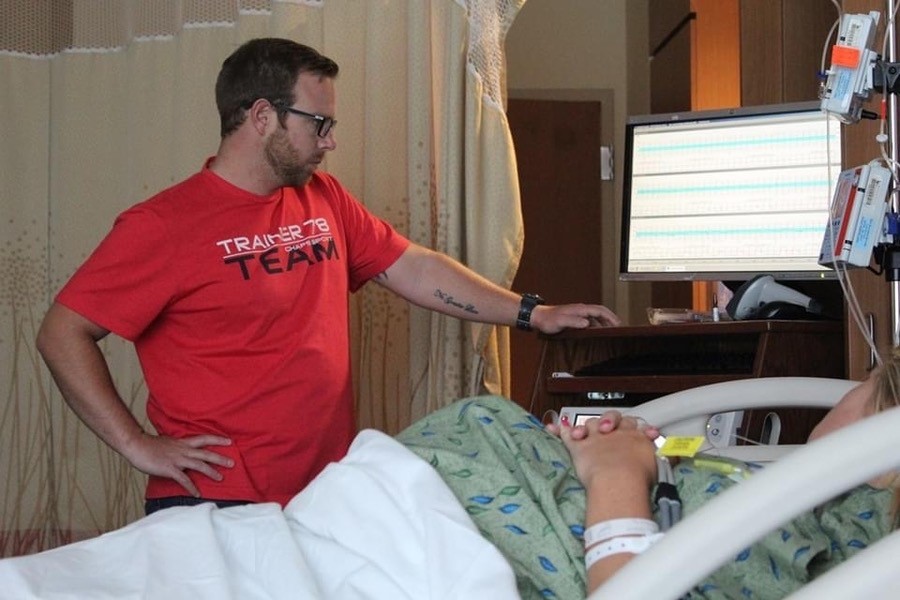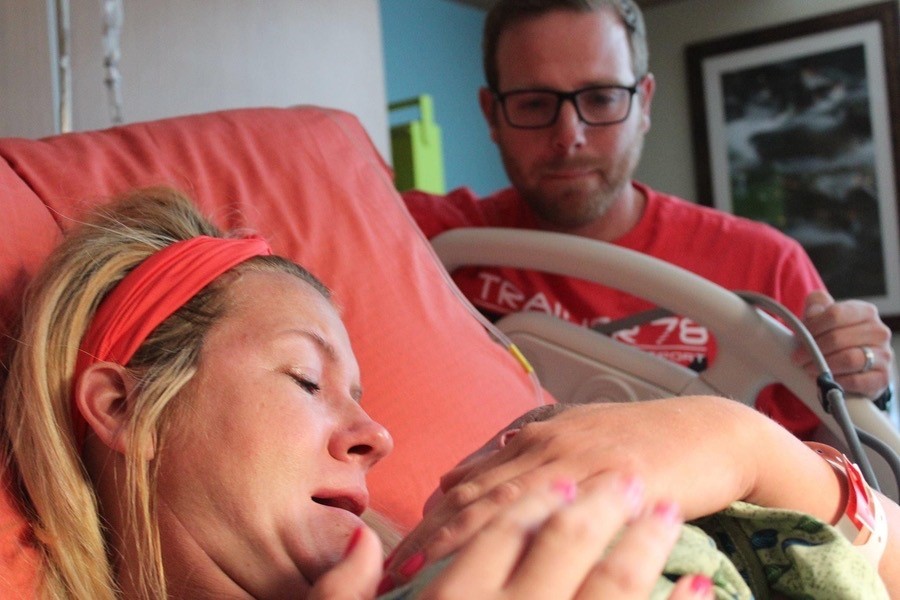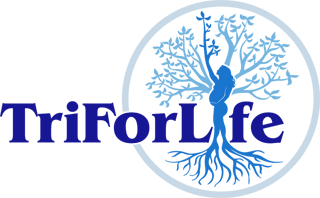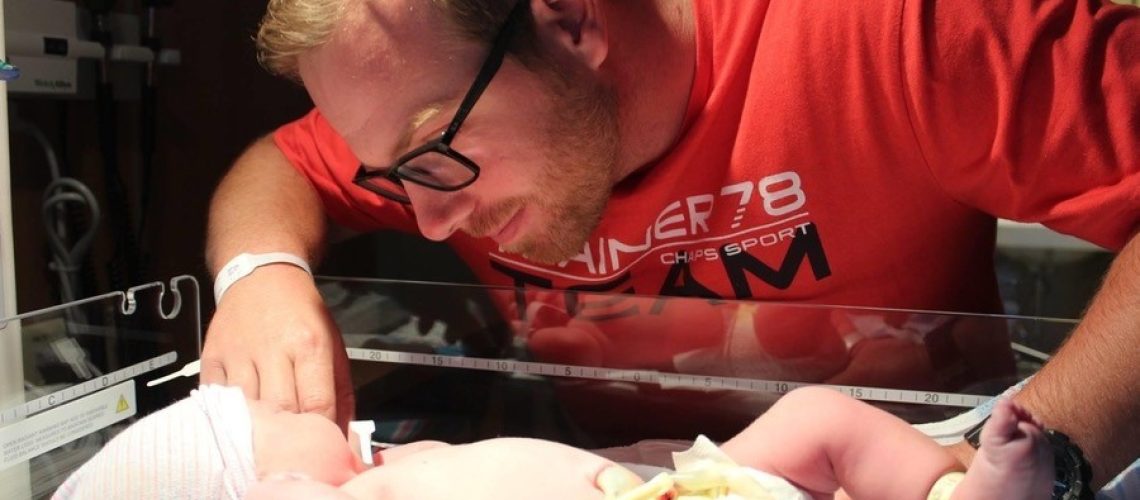Recently my youngest son has started crying out for his father when he gets in trouble.
It’s not just when he gets in trouble, he does it anytime he feels discomfort or doesn’t get what he wants. To say this stings my ego is an understatement. Come on kid! You have ravaged my body and my soul. I was torn apart growing and birthing you. I haven’t slept in years, and I basically eat, sleep and breathe all things little boy. I have given you every last bit of energy and drop of patience I have, and now you’re digging those claws deep and crying for your dad. Awesome.
This is one of those awkward, hurtful growing pains that you don’t want to admit to. If I’m being honest right now, I really don’t think it’s fair to dads either. Dads do a LOT for their families.
Now, go ahead and get all of those negative feelings out and own them. What you’re feeling is real and normal. However, put it aside because today we are giving dads the spotlight.
Through the, “my child is divorcing me” overly dramatic pity party I was throwing myself, it made me realize, we don’t talk enough about dads.
Dads are often the unsung heroes of our stories. We always talk about moms and reflect on what powerhouses they are; but, what about dads?
There’s a reason my kids love my husband. He’s an incredible father
He plays games I would never think of, gives the best advice and he can throw my precious, delicate children in the air to heights that make me nauseous, which I’m sure is thrilling. I had to scold myself and remind my overly delicate ego how blessed I am. I’m able to observe so much about my life and spend so much time with my boys because my husband provides for us, and gives us a safe space to be crazy idiots. Unfortunately, I often overlook how much he does to keep us safe and provided for.
This made me want to know more about dads. What goes on inside a father’s head? What drives him? What makes him happy? What scares him?
I started out asking the two most important fathers in my life, my husband and my father. I asked them both the question, “what scared you most about having children?” I had this theory that fathers are driven to provide and protect their children. That’s a little more of a rugged drive than a mother’s nurturing instinct.

My husband told me his biggest fear is that my health or our baby’s health would fail. My dad’s answer was directed more toward raising courageous, strong adults who have grounded identities in Christ.
I decided to ask more fathers the same question. The overwhelming responses from fathers with children still in the home were revolved around being able to protect them, care for them and provide for them. Fathers with children that were grown had responses shifting more toward worrying they wouldn’t raise them properly, or give them the tools they need to be functioning adults. I had a few outliers who mentioned a worry of how their lives would change once they had children, for instance, sleep, vacations, free time etc… However, the majority of dads worried most about the safety, provision and long-term stability of their children.
How fortunate are we to have men by our sides who struggle with these worries?
Not to celebrate anyone’s anxieties, but some of us are screwed up and feel that the degree to which someone worries about us measures the love they may feel for us. I know, I’m crazy, but there’s something comforting knowing that someone out there loves us so much that they worry about us.
Sometimes I feel like we overlook the emotional body of fathers because they are viewed as the providers and protectors. We forget about their feelings.
I feel they typically express love differently. Women in general are normally better at expressing outward emotion. I speak for myself, but the men in my life sometimes express love in ways slightly foreign to me. I might just look at my children and say, “I love you so much” followed by a big hug and kiss, whereas my husband will buy them every piece of protective equipment needed for an activity. Not to say he doesn’t express how he feels for them, but I observe a lot of secondary actions from my husband and father that mean, “I love you”.
Once, my dad bought my mom a fancy lawnmower as a present. I feel like I’m hearing gasps from the readers right now.
I firmly believe in my father’s man heart/brain, he wanted to make her yardwork easier. His love was expressed through actions and work. My father was a hard worker and had a great identity through his work. It’s not crazy to think he would express love in the form of work, or tools for work. I understood this about him. I have some of those same work identity tendencies myself.
Clearly, giving a woman a lawnmower was less than romantic. To my mother it didn’t feel like a gift of appreciation or love.
Maybe my mom felt like a workhorse receiving that gift? Either way, they were both misunderstood. I often think of that gift. My parents love each other unconditionally and I’ve always known that. How could this gift have been so miscommunicated? It happens. That’s life, but it’s always nice to understand another person’s true intentions, or feelings.
When I was 16 years-old, I developed a stalker at a clothing store I worked at. I tried to go on with my life and not be controlled by fear.
To my father this must have been horrible. The fear he and my mother experienced was something I did not understand at the time. One night I went out to eat with my friends after work, and I had forgotten my cell phone at home. In 1999 not everyone had a cell phone glued to their hands at all times. My parents knew where I was going, but they expected to be able to reach me for safety reasons. When I did not answer my phone, things went south. My dad showed up at the restaurant I was at panicked, and he made me leave with him. He was so upset. He yelled at me and I could not figure out why he was so mad at me. It took me years to realize he wasn’t mad at me. He was terrified. He was out of control. The fear of terrible things happening to your children could make anyone sick. I understand that more now that I’m a mother. That fear was also his boundless unconditional love for me.
I have since seen that love in my husband. He handles our boy’s accidents much worse than I do.
When they get hurt, he gets so angry. I have to remember not to take this personal. Sometimes I feel like he’s angry at me for letting the accidents happen, as if we have some kind of superior control of the universe. I know accidents are inevitable, and kids are basically trying to destroy themselves through every waking hour, but sometimes I think my husband believes all negative things can be prevented. My husband is taking these accidents personal all on his own. He is their provider and their protector. I believe he thinks he failed at protecting them when unavoidable accidents happen.

I don’t think my husband is the only man to feel this way concerning his children.
So, when dads have outbursts of anger when things go wrong or kids get hurt, give them a break or a hug. They have put an immense amount of pressure on their own shoulders, and most often they don’t express emotion or process it like we as mothers do.
I think because moms and dads function totally different, we misread things. Moms are nurturers.
We want to comfort, love and care for our families. Dad’s are doing grunt work that helps the family stay comfortable, safe and prevent them from having hard times. Maybe it’s not unreasonable to say that some ways father’s show love go unnoticed because it’s not direct affection, and that’s not fair. We need to look deeper at our husbands and dads and value the ways they love us. I believe my dad loved us through working hard and providing for us. I believe my husband loves us in the way he keeps us safe and provides for us.
Think about all of the ways we lean on our husbands and fathers. There are hundreds of things that can go wrong and we immediately look to them for help.
When your car starts making a noise who do you call first? If a pipe starts to leak or a toilet won’t stop running, who is going to help you fix it? If you’re at home alone and you hear a noise that scares you, who do you call to check it out(if it’s not the police)? Or, if you need a laugh, who do you call for a good Dad-joke?
When I was in labor with my first son, I was exhausted, scared and I felt like my son was stuck in the birth canal. I firmly believed I could not push him out.
I began to panic and said, “I can’t do it. I can’t get him out!”. I was terrified! The nurses were all telling me I was okay and could indeed, push him out. I did not believe them. It wasn’t until my husband looked me in the eyes and said, “yes you can, you can do this. I know you can,” that I believed it was possible. I knew he would never tell me to do something that would hurt us. I knew that he knew my limits, and he championed me to the finish. He was my rock.
It’s times like these that remind me how much we rely on our husbands and fathers. Often we overlook their strength; the very strength that pulls us through fear or bad situations.
We think because we are busy and doing so much out in open view, that the things they are doing in the background don’t matter as much. Some of the luxuries we have are because of what is going on in the background.
Friend’s, appreciate your husbands and fathers. Don’t take them for granted. They probably show love differently than we do and that’s exactly how God designed it.
If you need something different from them, tell them. Most people I’ve met are not mind readers. A father is the first man you love, and always the person you want to make proud. Appreciate your father’s worries, concerns and obviously his jokes. They are valid, and they are love. Appreciate them while you have them. Time, like a dad is, so priceless.

